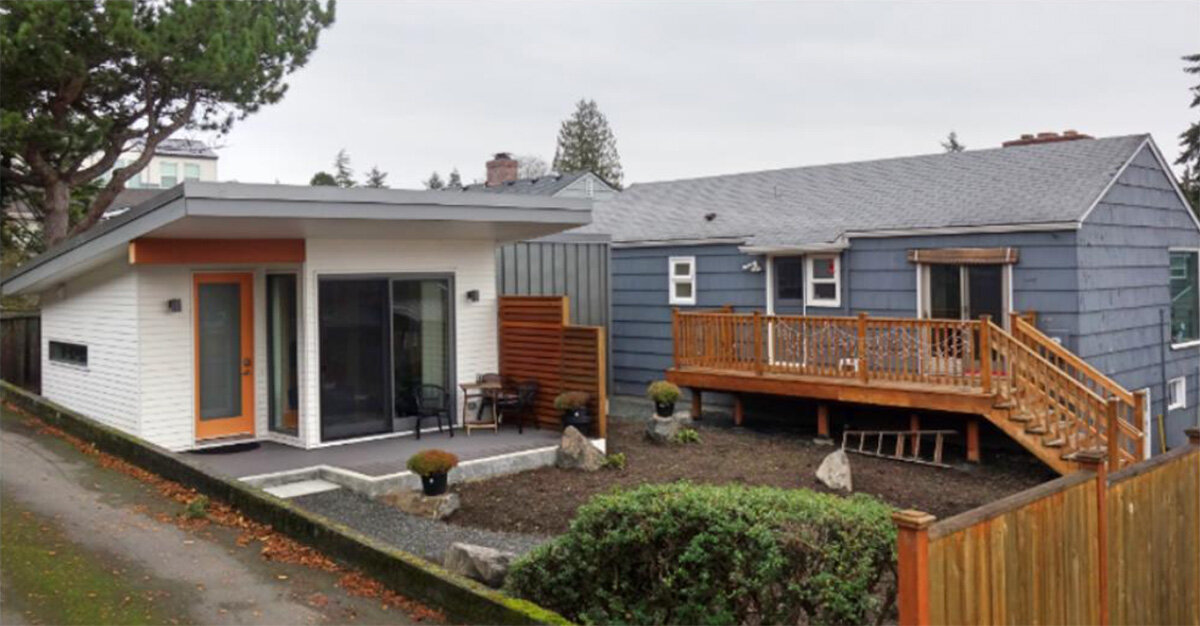Little Compton OKs in-law apartments
New rule is a reversal of decision to ban made in December
In a reversal of a decision made in December, members of the Little Compton Town Council last week approved in-law apartments — also known as accessory dwelling units, or ADUs — for …
This item is available in full to subscribers.
Please log in to continue |
Register to post eventsIf you'd like to post an event to our calendar, you can create a free account by clicking here. Note that free accounts do not have access to our subscriber-only content. |
Day pass subscribers
Are you a day pass subscriber who needs to log in? Click here to continue.
Little Compton OKs in-law apartments
New rule is a reversal of decision to ban made in December
In a reversal of a decision made in December, members of the Little Compton Town Council last week approved in-law apartments — also known as accessory dwelling units, or ADUs — for homeowners whose properties are at least 20,000 square feet or more and who meet certain other requirements that conform to state law.
The new rules, which are intended to help address the town’s current lack of affordable housing for year-round residents and others, include certain restrictions. For example, only one ADU is allowed per lot and property owners must provide a safe and adequate water supply and an on-site wastewater treatment system. Additionally, the units may not be used for short-term rentals for a period of less than 30 days.
The impact of state law
The council’s decision means the town ordinance will conform to existing state law as well as to changes that are expected to go into effect statewide by June. Currently, the state says an ADU is allowed by right on any lot that is 20,000 square feet (about one-half acre) or more.
If a town chooses not to abide by that rule, it can ban ADUs entirely, which is what the council opted to do in December. Little Compton’s far more restrictive zoning ordinance up to that point had limited ADUs to properties of at least three acres or more.
Council member Gary Mataronas, who in December cast the only vote against the ADU ban, began researching other options at that time. When he learned that state lawmakers are expected to pass new laws in the current legislative session mandating that every town must allow ADUs, he proposed language that essentially mirrors what the state will likely adopt.
Planning board weighs in
Before voting last week, councilors considered planning board recommendations, which included a provision that allowed ADUs in residential districts if properties had a minimum lot size of two acres.
“I understand what the planning board is doing,” town solicitor Anthony DeSisto said. “They want to conform with the Comprehensive Plan, but unfortunately in this circumstance, it is overwritten by state law.”
DeSisto added that the structure of the current state law means towns may choose not to have ADUs at all, but if the bill now being considered by the General Assembly is approved, that option will go away.
“If this bill passes … all cities and towns will have to have ADUs along the lines of what is in the statute now. The main feature is [ADUs are allowed] by right if the lot is over 20,000 square feet.”
The planning board’s recommendation, DeSisto said, would not comply with either the current state law or the future one, when and if the General Assembly approves it.
Mataronas said while he also understood the planning board’s objective, the fact that ADUs serve as a way to relieve the housing crisis is a critical consideration.
“I think the planning board held up to their objective to protect the Comprehensive Plan, but the town has to decide … do we want the wealth to keep coming into this town and the natives and young children will have to leave because they can’t afford it, or do we want to break down a little and say, this is a way we can do that?”
Other considerations
During the public hearing, resident Victoria Talbot presented an alternate perspective, noting that “nobody talks about water usage for these massive houses that are getting built …[with] eight bedrooms, six bathrooms, swimming pools, and irrigation of the lawns … I don’t hear concerns about water for those but I do for these little one- and two-bedroom ADUs.”







